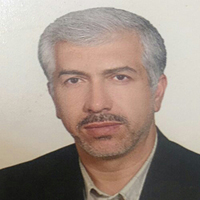Developing a Geopolitical Strategy; A Requirement in the Transition to a New Stage of Development
The Islamic Republic of Iran, as a regional power with effective acting potentials in international arenas, while being affected by the transformations of international relations, seeks to influence existing relations and structures. Iran's vast and distinct geography, huge energy resources in and around the territory, composition and quality of young and talented demographic structure, ideological cohesion, depth and breadth of cultural influence, unique geopolitical position with strategic mutual effects on regional developments and other relative advantages are among the prominent characteristics of Iran in the international space. Despite this, the stability of internal and external security, economic growth and development, extensive communications with the areas of software influence and influence on regional and extra-regional developments of Iran are realized in the conditions that the Islamic Republic of Iran designs and formulates its sustainable development and internal and external interactions in the form of a comprehensive strategy and based on geographical and geopolitical realities and the relative advantages of the country. From point of view of political geography and geopolitics, this important issue represents a strategic design called geopolitical strategy which is an operational overview with strategic attitudes and approaches based on geographical realities that generate power, in such a way that with a comprehensive view it provides a platform to enter the power scenes with minimum cost and at the highest possible level with the aim of optimally representing and providing comprehensive interests of the country. Based on the research findings, Iran in the preparation and regulation of the "Iranian Islamic Model of Progress" as far as it is concerned with the external strategic environment, must inevitably accept three key facts as follows: 1. Density of peripheral threats, 2. Uncontrollable borders and 3. lack of an international support umbrella; Because these territorial realities of Iran leave long-term effects on security, national unity and all areas, and by adjusting the geopolitical strategy, Iran can continue to influence the region and the international system, effectively.
-
Investigating and analyzing the effect of geopolitical indicators of membership in regional pacts
Alireza Norouzifard, Ebrahim Roumina*, , Ribaz Ghorbaninejad
Journal of Space Political Planning, -
Turkey's territorial expansion in the South Caucasus and its effect on the national security of the Islamic Republic of Iran
Mahdi Elmi *, Rebaz Ghorbaninejad, Mohamad Akhbari, Azam Yosefi
Scientific Journal of Security Horizons,



